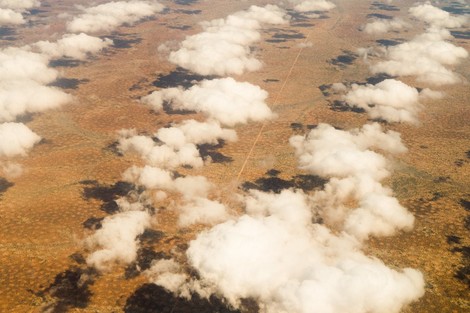Your podcast discovery platform
Curious minds select the most fascinating podcasts from around the world. Discover hand-piqd audio recommendations on your favorite topics.

piqer for: Global finds
Ciku Kimeria is a Kenyan author "Of goats and poisoned oranges" - (https://www.amazon.com/goats-poisoned-oranges-Ciku-Kimeria-ebook/dp/B00HBBWPI6), development consultant, adventurer and travel blogger (www.thekenyanexplorer.com). She writes both fiction and non-fiction focusing on African stories that need telling. She has worked on diverse pieces for various international and local publications including Quartz, Ozy, The East African etc. She has travelled to 45 countries – 16 of them in Africa. 153 countries to go and 63 territories!
"Of goats and poisoned oranges" has been extremely well received in Kenya and beyond. It tells the story of a Kenyan middle aged power couple and their complicated marriage. The novel explores issues of greed, revenge, betrayal and murder. It runs from the 1960s to 2013. It has been described as “Wicked, funny, poignant, wacky, human, a big ball of fun and danger”, “A unique and captivating book”, “Fun and intriguing”, “Impossible to put down once you start reading.”
She recently moved to Dakar, Senegal from Kenya to work on her second novel. She also works at as the Africa Communication Manager at a leading global strategy consulting firm.
She holds a B.S. in Management Science from MIT with minors in Urban Planning and International development studies.
The Future For Somali Refugees In Trump's America
In the wake of President Trump's disparaging statements about immigrants from Africa and other non-white countries, one has to wonder what this means for refugees and asylum seekers from any of these regions. Though Trump's recent statements are highly inflammatory, they are in no way that different from what he has continually shown to be his plan of Making America Great Again. As he fights to get funding for his Mexico wall, clamps down on chain migration to the US, pushes forward with plans to scrap legal protection for the dreamers – undocumented workers who arrived in the US as children – the message is loud and clear. Immigrants – especially those from certain parts of the world, are not welcome in the US.
It was a year of Googling “Donald Trump” and texting the United Nations refugee office here and asking anyone who might know anything about the newest U.S. travel ban. Nowhere in the world was there a larger concentration of people who were affected by the White House’s decision to suspend refugee admissions — at first globally, then from 11 “high-risk,” mostly Muslim countries. In February, Dadaab had 14,500 people who were already in the pipeline for resettlement....It was a year of looking for alternatives to the United States.
For the refugees in Dadaab camp, with both the Muslim ban and the continuing fight against immigrants to the US, their already slim chances of getting resettled are getting slimmer. For those with relatives in the US, they are realizing that they might never be reunited with their families.
A few years ago, there were more plane trips to the United States than to Somalia. Now it’s the other way around. The resettlement of Somali refugees in the United States has almost ceased entirely. The Kenyan government is threatening to shutter the camp.
The realities of America First are not lost on the refugees at Dadaab camp. Their only hope is that other countries will be more welcoming to them.
